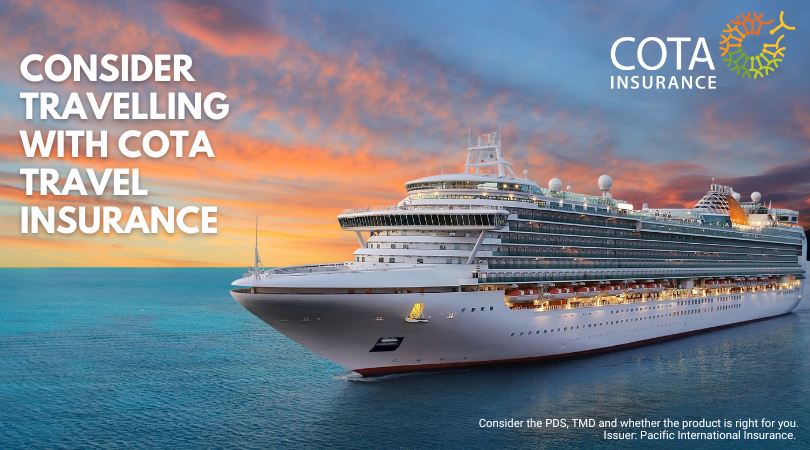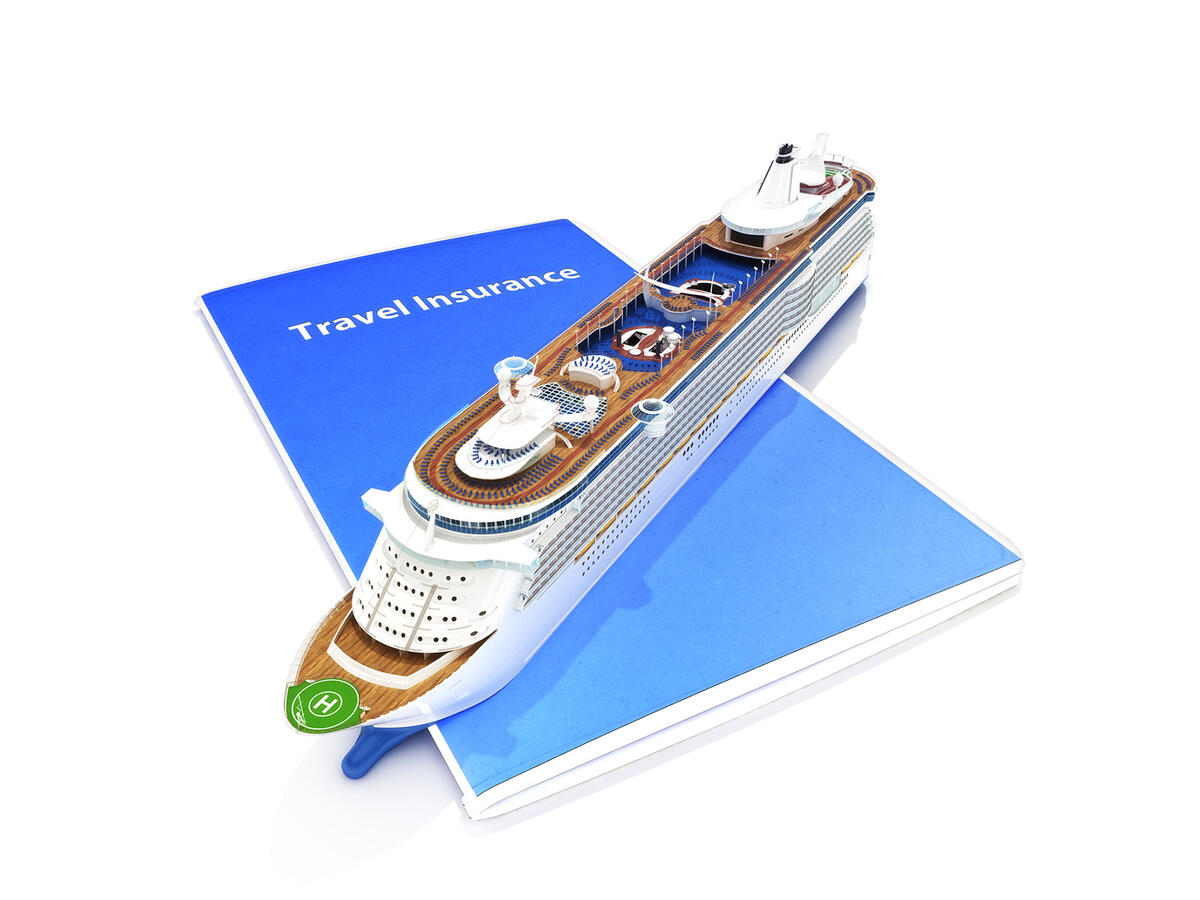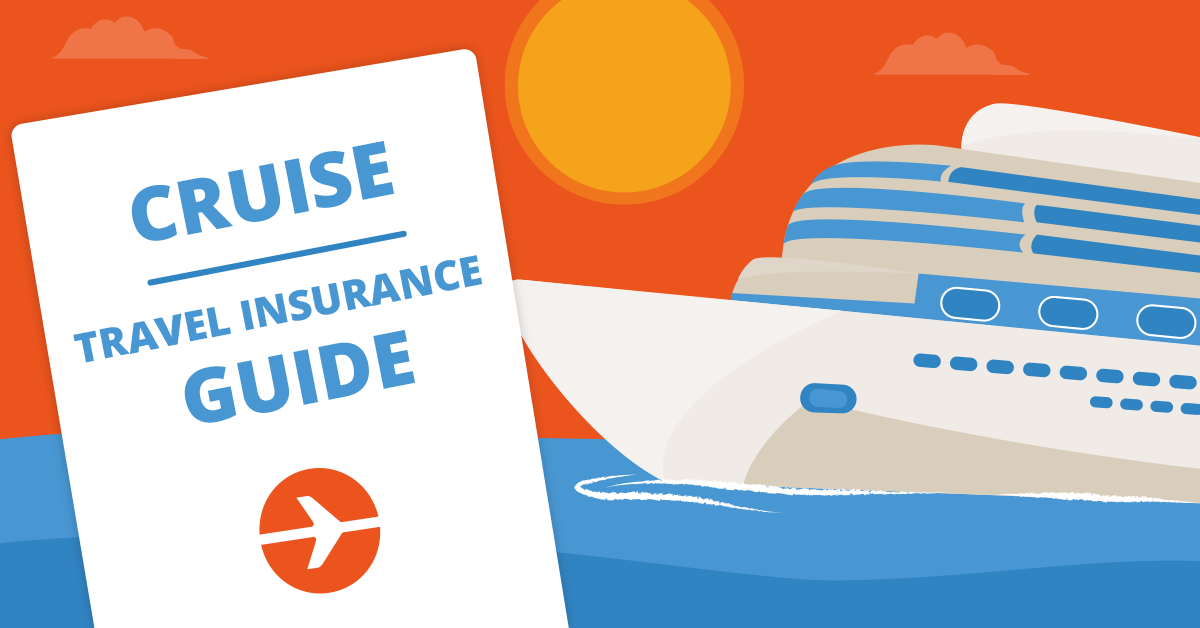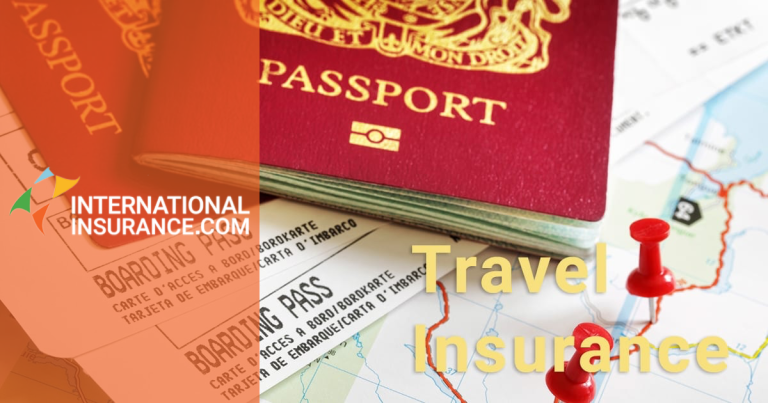International Cruise Travel Insurance Your Essential Guide
Travel insurance for international cruises is crucial for a smooth and worry-free voyage. This guide explores the critical aspects of protecting your investment and well-being while on an international cruise, from comprehensive coverage to factors influencing costs. We’ll delve into the specifics of medical emergencies, trip interruptions, and baggage concerns, ensuring you’re well-prepared for any eventuality.
Understanding the different types of insurance available and the key elements of each policy is vital. We’ll compare policies, outlining their strengths and weaknesses, and ultimately providing you with the knowledge to choose the best protection for your cruise adventure.
Overview of International Cruise Travel Insurance
International cruise travel insurance is a crucial component of planning a seamless and worry-free cruise vacation. It safeguards travelers against unforeseen circumstances that can disrupt their journey or incur substantial financial losses. This insurance provides peace of mind, ensuring that unexpected events, from medical emergencies to lost luggage, are handled efficiently and financially protected.
Comprehensive travel insurance for international cruises extends beyond the typical travel insurance policy. It addresses the unique challenges and complexities associated with ocean voyages, including potential delays, cancellations, and specific medical situations encountered at sea. The insurance should be tailored to the particular needs of the cruise, covering aspects such as pre-existing conditions, medical emergencies during the cruise, and potential repatriation in case of medical or other emergencies.
Key Benefits and Coverage Aspects
International cruise travel insurance offers a range of benefits designed to protect travelers against financial burdens and inconvenience. These benefits typically include coverage for medical emergencies, trip cancellations or interruptions, lost or damaged luggage, and personal liability. Specific coverage often extends to expenses related to medical evacuation, repatriation, and emergency travel assistance.
Comparison with General Travel Insurance
While general travel insurance policies provide some coverage for various travel scenarios, cruise-specific insurance often offers more tailored protection. Cruises often involve unique risks, such as medical care on board, potential sea-sickness or other health issues during the voyage, and the complexities of repatriation. Cruise-specific insurance usually includes provisions addressing these concerns, while general travel insurance might not offer the same level of detail.
Types of International Cruise Travel Insurance Products

The market offers various types of international cruise travel insurance, each catering to specific needs and budgets. Choosing the right policy depends on factors like the duration of the cruise, the destinations, and the traveler’s health conditions. Below is a table illustrating different types of insurance products, their key features, price ranges, and common exclusions.
| Insurance Type | Coverage Highlights | Price Range | Policy Exclusions |
|---|---|---|---|
| Basic Cruise Insurance | Covers basic trip cancellation, medical emergencies, and lost luggage. Limited coverage for pre-existing conditions. | Generally lower than comprehensive plans. | Pre-existing conditions not immediately diagnosed, acts of terrorism, or war. |
| Comprehensive Cruise Insurance | Broad coverage for medical emergencies, trip cancellations, lost luggage, and pre-existing conditions. Often includes repatriation and other comprehensive benefits. | Higher price point compared to basic plans. | Conditions that could be reasonably anticipated or avoided with appropriate precautions, intentional self-harm, or acts of negligence. |
| Luxury Cruise Insurance | Extensive coverage for high-value items, premium medical care, and specialized services. Usually includes enhanced coverage for pre-existing conditions. | Highest price range, often tailored to individual needs. | Claims stemming from illegal activities, deliberate disregard of safety instructions, or claims for mental or emotional distress. |
Coverage Details for Cruise-Specific Risks
International cruise travel presents unique risks that standard travel insurance might not fully address. This section clarifies the specific protections offered by travel insurance policies for common cruise-related issues. Comprehensive coverage is crucial for a smooth and worry-free experience.
Medical Emergencies
Medical emergencies can arise unexpectedly during a cruise, especially on international voyages. Robust medical emergency coverage is essential for situations like sudden illnesses, injuries, or requiring urgent medical attention abroad. Policies typically cover the cost of necessary medical treatment, including hospitalisation, consultations, and ambulance transportation. It’s important to understand the policy’s limitations regarding pre-existing conditions and the extent of coverage for repatriation.
Trip Cancellations or Interruptions
Unforeseen circumstances, such as ship delays, severe weather conditions, or unforeseen health issues, can disrupt a cruise trip. Travel insurance policies usually provide coverage for trip cancellations or interruptions due to such events. The extent of coverage varies by policy and may include reimbursement for non-refundable expenses like flights, accommodation, and pre-booked tours.
Baggage Loss or Damage
Baggage loss or damage during cruise travel is a potential concern. Travel insurance can provide compensation for lost or damaged luggage, covering essential items like clothing, electronics, and personal documents. Coverage typically extends to items lost or damaged while in transit to or from the cruise ship or during shore excursions.
Liability and Personal Accidents
Excursions and activities onboard or ashore carry inherent risks. Insurance policies usually provide liability coverage for accidental injuries or damages caused to others. This includes both onboard activities and shore excursions. Crucially, personal accident coverage addresses injuries sustained during these activities. Understanding the scope of coverage for personal accidents is paramount.
Coverage Examples and Exclusions
The following table illustrates potential covered and excluded situations:
| Situation | Coverage | Exclusion |
|---|---|---|
| Sudden illness requiring hospitalisation during a cruise in the Caribbean. | Likely covered, including medical expenses, hospitalization, and repatriation (depending on policy). | Pre-existing conditions not declared at the time of purchase, if not covered by the policy. |
| Cruise ship experiencing mechanical issues causing a significant delay, resulting in the cancellation of planned shore excursions. | Likely covered for non-refundable costs associated with the cancelled trip. | Costs related to personal choices, such as buying a non-refundable flight ticket. |
| Baggage was lost during a shore excursion on a Mediterranean cruise. | Likely covered for the replacement of lost or damaged items, based on the value of the missing items (often with a stated maximum limit). | Items deliberately damaged or lost due to the policyholder’s negligence. |
| Guest slips on a wet deck and suffers a broken arm during a cruise. | Likely covered, including medical expenses and lost earnings (if applicable), depending on policy specifics. | Pre-existing conditions, if not explicitly stated in the policy, and injuries resulting from reckless behavior. |
| Accidental damage to a hotel room during a shore excursion, impacting other guests. | Likely covered, depending on the policy’s liability coverage. | Intentional damage or damage caused by gross negligence. |
Factors Affecting Insurance Costs

Source: pbcdn.in
International cruise travel insurance premiums are influenced by a variety of factors. Understanding these factors allows travelers to make informed decisions when selecting the most appropriate and cost-effective coverage. Careful consideration of these elements can significantly impact the overall cost of your insurance policy.
Destination Influence on Insurance Premiums
Different destinations pose varying levels of risk, impacting insurance costs. Regions with higher crime rates, political instability, or health concerns (such as prevalent diseases) often command higher premiums. For instance, insurance for a cruise to a region with a history of natural disasters like hurricanes or typhoons might be more expensive than a cruise to a more stable destination. Similarly, travel to a region with limited access to medical facilities could necessitate higher premiums.
Duration of the Cruise and Insurance Costs
The duration of the cruise plays a significant role in the insurance cost. Longer cruises generally involve higher premiums, as the risk of unforeseen events or medical emergencies increases with the duration of travel. This is due to the increased time spent away from familiar medical support systems and the possibility of encountering more potential complications.
Traveler’s Age and Health Conditions and Insurance Premiums
Age and pre-existing health conditions are crucial factors influencing insurance costs. Older travelers or those with pre-existing medical conditions generally face higher premiums, as their risk of needing medical attention during the cruise is often higher. Insurance companies assess these factors to determine the appropriate level of coverage and premium for each individual. Insurance companies typically offer different pricing tiers based on age brackets. For instance, a traveler in their 70s with a history of heart conditions will likely have a significantly higher premium than a younger, healthier individual.
Comparison of Insurance Costs Across Cruise Lines and Itineraries
Different cruise lines and itineraries can have varying insurance costs. Cruise lines with a reputation for robust safety measures and emergency response systems might offer lower premiums. Itineraries involving remote or less developed destinations typically have higher insurance costs. A cruise to the Caribbean might have different insurance costs than a cruise to the Arctic. The specifics of each itinerary, including the ports of call and the destinations visited, also affect insurance costs.
Table Illustrating Price Ranges for Various Cruise Destinations and Durations
| Destination | Duration (Days) | Age Group (Years) | Estimated Price (USD) |
|---|---|---|---|
| Caribbean | 7 | 25-35 | 150-250 |
| Alaska | 10 | 55-65 | 300-450 |
| Mediterranean | 14 | 20-30 | 200-350 |
| South Pacific | 12 | 40-50 | 350-550 |
| Panama Canal | 8 | 60-70 | 400-600 |
Note: These are estimated price ranges and can vary significantly based on individual circumstances, specific coverage options, and the chosen insurance provider.
Crucial Considerations for Choosing a Policy

Source: cruise.blog
Selecting the right international cruise travel insurance is paramount to a worry-free vacation. A comprehensive policy protects you against unforeseen events, ensuring your trip proceeds smoothly and that you are adequately covered for medical expenses, trip cancellations, or lost belongings. Careful consideration of key factors is essential to finding the best policy to suit your needs.
Thorough research and understanding of the specific terms and conditions of the policy are crucial. This meticulous process allows you to make an informed decision, ensuring the chosen policy aligns with your expectations and financial capabilities.
Essential Factors to Consider
Understanding the key aspects of an international cruise travel insurance policy is vital. Consider factors like the policy’s coverage limits, the types of incidents it addresses, and the specific inclusions and exclusions. This proactive approach will prevent any surprises during your cruise.
- Coverage Limits: Review the maximum coverage amounts for medical expenses, trip cancellations, and lost belongings. For instance, a policy with a low limit for medical expenses might not adequately cover substantial medical costs if an unexpected illness arises during the cruise. Ensure the coverage aligns with your anticipated needs and financial situation.
- Types of Covered Incidents: The policy should specify the types of events it covers. Examples include pre-existing medical conditions, trip cancellations, lost luggage, and medical emergencies during the cruise. Ensure that the policy comprehensively addresses the potential risks associated with your cruise.
- Inclusions and Exclusions: Carefully examine the policy’s inclusions and exclusions. Some policies might exclude coverage for pre-existing medical conditions or specific activities like scuba diving. Understand what is included and excluded to avoid any unforeseen issues.
Importance of Reading Policy Terms and Conditions
Carefully reviewing the policy’s terms and conditions is critical to avoid any unforeseen issues. This meticulous process prevents misunderstandings and potential disputes. Understanding the terms and conditions provides clarity about the policy’s scope and limits, ensuring you have the appropriate level of protection.
- Specific Coverage Details: The policy document will contain detailed explanations of the types of events covered, the procedures for filing claims, and the limitations of coverage. Thoroughly review this information before making a decision.
- Exclusions: Identify specific exclusions that may affect your trip. These may include pre-existing medical conditions, certain activities, or travel outside the specified destinations.
- Claim Procedures: Familiarize yourself with the claim process in the policy. Understanding the procedures beforehand will help streamline the claim process in case of unforeseen circumstances.
Checking for Exclusions Related to Pre-Existing Medical Conditions
Pre-existing medical conditions can significantly impact your travel insurance coverage. Understanding the policy’s exclusions regarding pre-existing conditions is crucial. It’s essential to know how the policy handles pre-existing conditions and if they are excluded from coverage.
- Review Policy Language: Pay close attention to the policy’s wording regarding pre-existing conditions. Look for specific details about how pre-existing conditions are addressed. This will ensure that you are aware of the policy’s position on these matters.
- Consult the Provider: If you have any uncertainties regarding the policy’s provisions for pre-existing conditions, contact the insurance provider directly. This step ensures you have a clear understanding of the coverage for pre-existing conditions.
- Disclosure Obligations: Understand the policy’s disclosure obligations concerning pre-existing conditions. This ensures that you comply with any disclosure requirements to maintain coverage validity.
Comparing Policies from Different Providers
Comparing policies from different providers is a vital step in selecting the best option. Compare coverage details, costs, and exclusions to find the optimal policy for your needs. This comparison ensures you have the best possible coverage for your international cruise.
- Use Comparison Tools: Leverage online comparison tools to compare various insurance options. These tools can assist in identifying the best policy for your cruise.
- Analyze Coverage Details: Thoroughly examine the coverage details for each policy. Look for any differences in the scope of coverage and limitations. Compare policy specifics to find the most suitable policy.
- Consider Costs and Premiums: Evaluate the premiums and costs associated with each policy. Consider the policy’s overall cost and compare it with the level of coverage offered. This will ensure that you are getting the best possible value for your money.
Checklist of Questions to Ask Before Purchasing
Asking clarifying questions before purchasing is critical. A comprehensive checklist of questions will help you make an informed decision.
- Coverage for Pre-Existing Conditions: Clarify how pre-existing conditions are handled by the policy. This will prevent any misunderstandings.
- Specific Exclusions: Ask about any exclusions related to particular activities or destinations during your cruise.
- Claim Process and Timelines: Inquire about the claim process and expected timelines for receiving reimbursement.
- Policy Limits and Deductibles: Understand the policy’s limits and deductibles to accurately assess the financial implications of a potential claim.
Claims and Dispute Resolution: Travel Insurance International Cruise
Navigating the claims process for international cruise travel insurance can be straightforward if you understand the procedures and timelines involved. Knowing your rights and the steps to take in case of a dispute is crucial for a smooth resolution. This section articulates the claim filing process and dispute resolution options.
Claim Filing Procedure
Understanding the claim filing process is essential for the timely and efficient resolution of any insurance issues. A well-defined procedure minimizes potential delays and ensures that your claim is processed accurately and fairly. This process often involves several steps, including initial notification, documentation gathering, and evaluation.
- Initial Notification: Contact your insurance provider immediately after the event giving rise to the claim. Provide them with all relevant information, including the date, time, and nature of the incident. The more detail you give at the start, the smoother the process will likely be. For example, if your cruise was canceled due to a storm, include details like the storm’s name and severity, and the date of the cancellation notice.
- Documentation Collection: Gather all necessary documentation supporting your claim. This may include receipts, medical records, flight itineraries, cruise tickets, and any other evidence related to the incident. Ensure that all documents are clear, legible, and easily accessible for the insurance provider.
- Claim Form Submission: Complete the insurance claim form, providing accurate and comprehensive information. Follow the instructions carefully and attach all required supporting documents. Thoroughness in this stage often prevents delays in processing.
- Claim Assessment: The insurance provider will review your claim and supporting documentation. They may contact you for further information or clarification. This stage may take time as the insurance provider verifies the details and ensures the claim aligns with the policy’s terms and conditions.
- Decision Notification: The insurance provider will notify you of their decision regarding your claim, whether it is approved, partially approved, or denied. If approved, they will articulate the amount and payment schedule.
Dispute Resolution
Disagreements with insurance providers regarding claims can arise. A well-defined process for dispute resolution is critical for maintaining a positive relationship and ensuring fairness.
- Review Policy Terms: Carefully review your insurance policy’s terms and conditions to understand the procedures for handling disputes. This will clarify your rights and responsibilities in case of a disagreement.
- Communication: Communicate with the insurance provider promptly and professionally. Maintain detailed records of all communications, including emails, letters, and phone calls. This documentation can be crucial if the dispute escalates.
- Mediation: Many insurance providers offer mediation services to facilitate a resolution between the parties. This process involves a neutral third party who helps to find a mutually agreeable solution.
- Legal Action: If mediation fails to resolve the dispute, you may consider pursuing legal action as a last resort. This step should only be taken after exhausting all other options. Consult with a legal professional to understand your rights and the process involved.
Claim Timelines
Claim processing timelines vary depending on the insurance provider and the complexity of the claim. Some providers offer estimates for processing times, which are often dependent on the type of claim and the completeness of documentation.
Claims processing can take several weeks to months, depending on the insurance company and the specifics of the claim.
Illustrative Examples of Coverage Scenarios
Understanding the specifics of your international cruise travel insurance is crucial for a smooth and worry-free trip. This section provides illustrative scenarios demonstrating how coverage might apply in various situations, highlighting both covered and excluded aspects.
These examples aim to clarify the potential benefits and limitations of your chosen policy, helping you make informed decisions about your trip protection.
Medical Emergencies
International cruises often involve travel to unfamiliar destinations. Medical emergencies can arise unexpectedly.
- Scenario: A passenger experiences a sudden and severe allergic reaction on a cruise ship in the Caribbean. The reaction requires immediate medical attention, including hospitalization and several days of treatment. The policy covers the necessary medical expenses, including hospitalization, medications, and doctor visits, up to the policy limits. It also likely covers repatriation if the condition requires immediate return to the home country. However, pre-existing conditions are typically excluded, so any expenses related to a previously diagnosed condition might not be covered.
- Scenario: A passenger suffers a heart attack while on a cruise in the Mediterranean. The passenger is immediately transported to a local hospital for treatment. The policy likely covers emergency medical treatment, including the cost of the medical care and any necessary evacuation, subject to the policy’s maximum benefit amounts and any exclusions related to pre-existing conditions. If the condition requires prolonged hospitalization, the coverage duration and amount might be limited by the policy terms.
Trip Cancellations
Unforeseen circumstances can lead to trip cancellations. Policies often provide specific coverage for this.
- Scenario: A passenger’s home experiences a significant natural disaster (e.g., a hurricane) that renders their home uninhabitable. The passenger is forced to postpone or cancel their cruise. Depending on the specific policy and the reason for cancellation, the policy may cover some or all of the non-refundable trip expenses, including flights, accommodation, and cruise fare, but exclusions may apply, such as if the cancellation is due to personal reasons or if the disaster was not significant enough to warrant the cancellation.
- Scenario: A passenger’s close family member unexpectedly falls seriously ill. The passenger needs to return home immediately for personal care. The policy may cover the cost of canceling the cruise and the associated non-refundable expenses, contingent upon the specific policy’s terms and the urgency of the situation. Policy limitations regarding personal reasons and the need for medical documentation might apply.
Baggage Loss
Loss or damage to baggage can be a significant inconvenience during a cruise. Insurance policies typically address this issue.
- Scenario: A passenger’s luggage is lost or damaged during a cruise ship transfer. The passenger is missing essential clothing and toiletries. The policy may cover the replacement value of the lost or damaged items up to the stated policy limit. The policy likely requires documentation of the lost or damaged items to claim compensation. There are likely limitations regarding the amount covered per item and the total claim amount.
Additional Considerations
It is crucial to read the fine print of your policy carefully. Policies may have exclusions or limitations that impact coverage in specific scenarios. Be sure to clarify any uncertainties with your insurance provider.
International Cruise Insurance Options
A crucial aspect of planning an international cruise is securing comprehensive travel insurance. Different providers cater to the unique needs of cruise passengers, offering varying levels of coverage and price points. Understanding the diverse options available allows travelers to select a policy that best suits their requirements and budget.
Several factors influence the choice of an international cruise insurance plan, including the length of the cruise, the destinations visited, and the specific activities planned. A carefully chosen policy can provide peace of mind, protecting against unforeseen circumstances that could disrupt the cruise experience or incur substantial costs.
Insurance Providers Specializing in International Cruise Travel
Numerous insurance companies and agencies specialize in travel insurance, with particular attention to cruise travel. These providers often possess a deep understanding of the risks associated with international cruises, enabling them to tailor policies to address these unique challenges. Examples include reputable providers known for their comprehensive coverage and dedicated customer service.
Diverse Options for International Cruise Insurance Plans
International cruise insurance plans vary considerably. Some policies focus on comprehensive coverage, encompassing medical expenses, trip cancellations, lost luggage, and emergency evacuation. Other policies might offer more limited coverage, such as only medical expenses or trip cancellations. The range of options available ensures that travelers can find a plan that meets their particular financial needs.
Features and Benefits of Various Insurance Companies, Travel insurance for international cruise
Different insurance providers offer varying features and benefits. Some may emphasize coverage for pre-existing medical conditions, while others might prioritize assistance with lost or damaged cruise-related items. The specific benefits offered by a provider often depend on their understanding of the complexities of international cruise travel.
Comparison of International Cruise Insurance Providers
| Provider | Key Features | Customer Reviews | Policy Costs |
|---|---|---|---|
| Travel Guard | Comprehensive coverage, including medical emergencies, trip cancellations, and lost baggage. Strong reputation for customer service and quick claim processing. | Generally positive, with frequent praise for their assistance during claims. | Moderate to high, depending on the chosen plan. |
| Allianz Global Assistance | Wide range of coverage options, including travel disruptions and medical emergencies. Known for a strong global network of assistance services. | Positive reviews emphasize their 24/7 support and extensive assistance network. | Moderate, often competitive with other providers. |
| World Nomads | Focuses on adventure travel, with policies catering to various levels of risk. Excellent coverage for trip cancellations, medical emergencies, and trip interruptions. | High customer satisfaction ratings highlight their support for travelers facing challenging situations. | Variable, often priced lower for shorter trips and simpler coverage. |
| InsureMyTrip | Online platform providing various cruise insurance options from multiple providers. Allows for quick comparison shopping. | Mix of reviews, with some appreciating the ease of comparison, others expressing concern about the lack of personal service. | Generally competitive, allowing for cost-effective plans based on customer needs. |
Note: Policy costs and customer reviews are examples and may vary. Always consult the provider’s website for the most up-to-date information. Customer reviews should be treated as a guide and not as definitive proof of quality. Actual experiences may differ.
Final Wrap-Up

Source: com.au
In conclusion, securing travel insurance international cruise is not just a precaution, but a strategic investment in peace of mind. By carefully considering coverage details, understanding cost factors, and selecting a suitable policy, you can navigate the complexities of international cruising with confidence. This comprehensive guide empowers you to make informed decisions and ensures your cruise experience remains enjoyable and worry-free.





